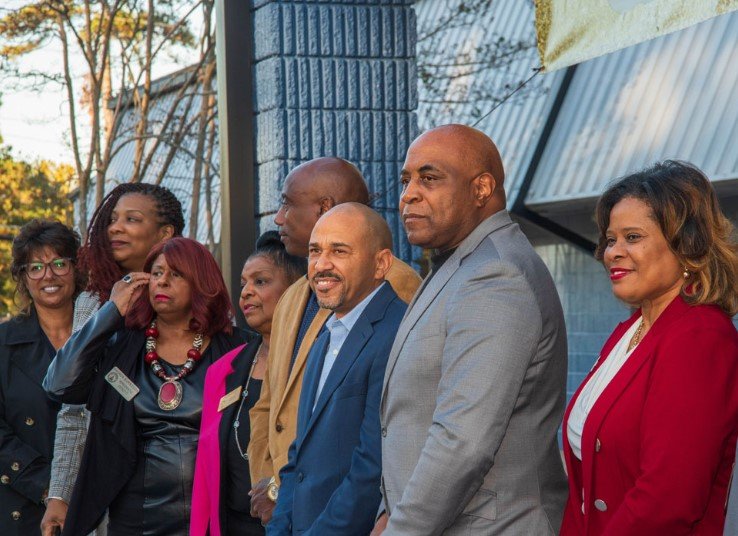In a recent decision, the Clayton County Board of Commissioners has revised its public comment policy, sparking a mix of reactions from the community. The new policy, which limits public comments to the end of meetings and restricts each speaker to two minutes, aims to streamline the meeting process. However, this change has been met with criticism from residents who feel their voices are being stifled. The policy change reflects ongoing tensions between the board and the public over how best to manage community input.
Public Comment Policy Changes
The Clayton County Board of Commissioners has decided to move public comments to the end of their meetings. This decision was made to ensure that the board can conduct its business without interruptions. The new policy limits each speaker to two minutes, with a total public comment period of twenty minutes per meeting. This change has been controversial, with some residents arguing that it limits their ability to participate in local government.
The decision to move public comments to the end of meetings was not unanimous. The board voted 3-2 in favor of the change, with Chairman Jeff Turner supporting the move. Commissioners Felicia Franklin, Gail Hambrick, and Alieka Anderson voted against it. The timing of public comments has been a contentious issue for years, with various changes being made over time.

Residents have expressed frustration with the new policy, feeling that it diminishes their opportunity to influence decisions. They argue that speaking at the end of meetings, after decisions have been made, renders their comments less impactful. Despite these concerns, the board believes that the new policy will lead to more efficient meetings.
Historical Context and Previous Changes
The issue of public comment timing has a long history in Clayton County. In 2017, the commission stopped live-streaming public comments due to what they considered toxic feedback. The following year, public comments were brought back but were placed at the end of meetings. In 2019, the comments were moved to the beginning of meetings, only to be shifted back to the end in 2022.
This back-and-forth reflects the ongoing struggle to balance public input with efficient governance. Each change has been met with mixed reactions from the community. Some residents appreciate the opportunity to speak, while others feel that their voices are not being heard. The latest change is just another chapter in this ongoing saga.
Commissioner DeMont Davis proposed the most recent change, suggesting that public comments be moved to the beginning of meetings and that the time allotted for each speaker be increased to three minutes. However, this proposal was rejected by the board. The decision to keep comments at the end of meetings and limit them to two minutes was seen as a compromise to maintain order and efficiency.
Community Reactions and Future Implications
The community’s reaction to the new policy has been largely negative. Many residents feel that their ability to participate in local government has been curtailed. They argue that the new policy makes it difficult for them to voice their opinions on important issues. Some have even suggested that the policy change is an attempt to silence dissent.
Despite the criticism, the board remains firm in its decision. They argue that the new policy will lead to more orderly and productive meetings. The board believes that by limiting public comments to the end of meetings, they can focus on their agenda without interruptions. They also argue that the two-minute limit per speaker ensures that more residents have the opportunity to speak.
Looking ahead, it remains to be seen how the new policy will impact community engagement. Some residents may become more vocal in other forums, such as social media or community events. Others may feel discouraged from participating altogether. The board will need to monitor the situation closely and be prepared to make further adjustments if necessary.
